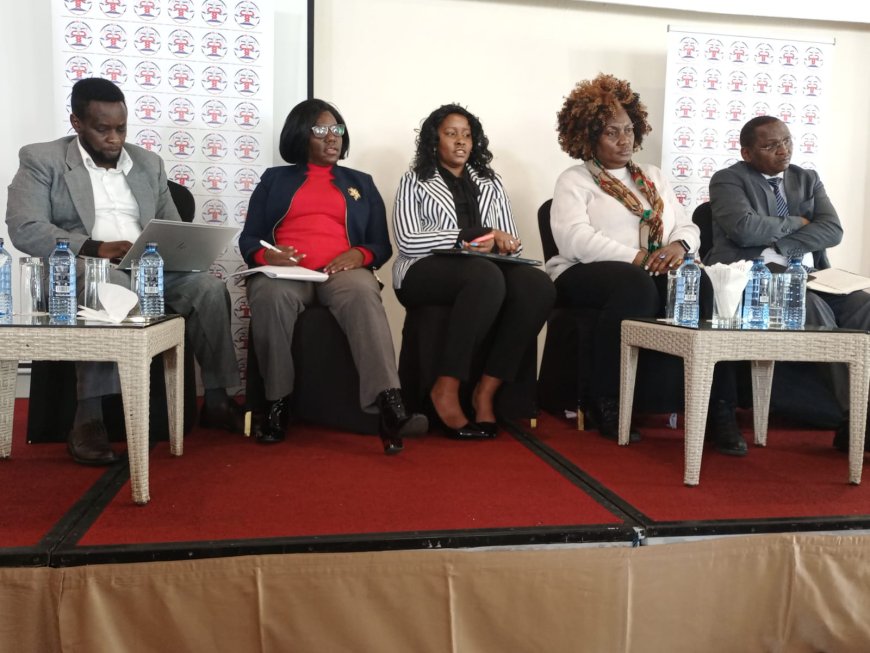Rights Lobby expresses concern over delays in providing reparations to victims

Nairobi, Tuesday June 27, 2023
KNA by Susan Gichanja/ Daisy Masinde
The Independent Medico-Legal Unit (IMLU), a human rights group has expressed its dissatisfaction over the delay in providing reparations to victims or survivors of torture.
This year's theme ‘reparations for victims or survivors of torture’ acknowledges the atrocities committed, provides compensation and facilitates healing for those affected by torture.
IMLU board chair representative Mr. Lawrence Mute explained that torture is a brutal violation of human rights that leaves a lasting physical, psychological and emotional scar on its victims.
“Numerous individuals have endured unimaginable suffering at the hands of those in power. We all know of the horror stories of Nyayo chambers, baby Pendo and the Kianjokoma brothers who were brutally murdered after being tortured. Many Kenyans have experienced severe physical pain, endured humiliation and been subjected to degrading treatment that has shattered their sense of self and security,” Mute remarked.
Speaking on behalf of the board chair, who was also the guest speaker, Mute further added that, “It is our moral duty to support victims and survivors of torture by providing them with reparations, which serve as a tangible acknowledgement of the pain and suffering endured by these individuals. They represent a commitment to rectifying the injustices perpetrated against them.”
“Compensation provides financial support to help survivors build their lives, allows them the means to access necessary medical treatment, rehabilitative services and vocational training because most of these victims face lifelong challenges such as posttraumatic stress disorder, anxiety, chronic pain and depression,” Mute disclosed.
In addition, reparations contribute to the restoration of dignity and self-worth. It sends a message that victims are not forgotten by the government, that their pain matters and they deserve justice. It gives them validation and helps alleviate the shame and stigma often associated with being a survivor of torture.
The government is tasked with the responsibility of ensuring that a reparations fund is implemented in a comprehensive and accessible manner, tailored to the specific needs of survivors for financial, medical and psychological support.
Moreover, it is vital to address the root causes of torture and prevent its recurrence. This involves strengthening legal frameworks, promoting human rights and fostering a culture of accountability. Holding perpetrators accountable and addressing the systemic factors that enable torture, we can strive towards a society free from torture and related violations.
Speaking during the forum, The Kenya National Commission on Human Rights Representative Elijah Rottok said, “Kenya has made significant strides in recognizing and addressing human rights including unequivocally prohibition of torture and cruel, inhuman and degrading treatment.”
Rottok also added that Kenya is a state party to various international and regional human rights instruments like the United Nations Conventions against Torture (UNCAT) and the African Charter on Human and Peoples' rights which underscore the obligation to provide redress including compensation to victims of torture.
Courtesy ; K. N. A
What's Your Reaction?



































































































































































































































































































